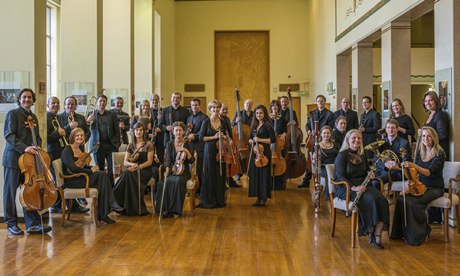
Featuring five premieres from composers based in north-west England, Ensemble 10/10's programme was billed as an introduction to the new Mersey sound, though Benjamin Gait's work is so far removed from beat music that he doesn't use bar lines. His short piece, Till night is overgone, was hushed, fragile and chant-like, if a little hesitant overall.
Ben Gaunt's The Old Cataclysm Blues had rhythm – Gershwin's, in fact, as the piece was a jazzy displacement exercise created while stalled on a more substantial work. The contributions of the two most senior composers both reflected on world conflict. Anthony Gilbert kept the Palestinian question in mind throughout a troubled journey from dissonance to unstable harmony; it was easy to imagine Edwin Roxburgh's plangent Lament for oboe and strings replacing Samuel Barber's Adagio as the go-to track for underscoring montages of the world's disaster zones.
Stephen Pratt's homage to Stravinsky, Chants du Printemps, was a fearless attempt to harness the brute energy of The Rite of Spring, like a rodeo rider clinging to a particularly implacable bull. Ian Stephens's tribute to the clarinettist Dame Thea King combined sublime echoes of her playing, set to the rhythm of a scurrilous limerick she wrote about a cow's dissatisfaction with artificial insemination.
Yet the most arrestingly individual piece, deftly handled by conductor Clark Rundell, was a work by the Liverpool-born composer Steve Martland, who died unexpectedly of a heart attack earlier this year, and to whom the concert was dedicated. Reveille evoked the hammer-blow intensity of Martland's mentor, Louis Andriessen, while the remorseless repetition of a rising three-note motif on the vibraphone sounded as if it might preface a demonic public address announcement giving details of the next egg-and-spoon race in hell.
• Did you catch this show – or any other recently? Tell us about it using #gdnreview

